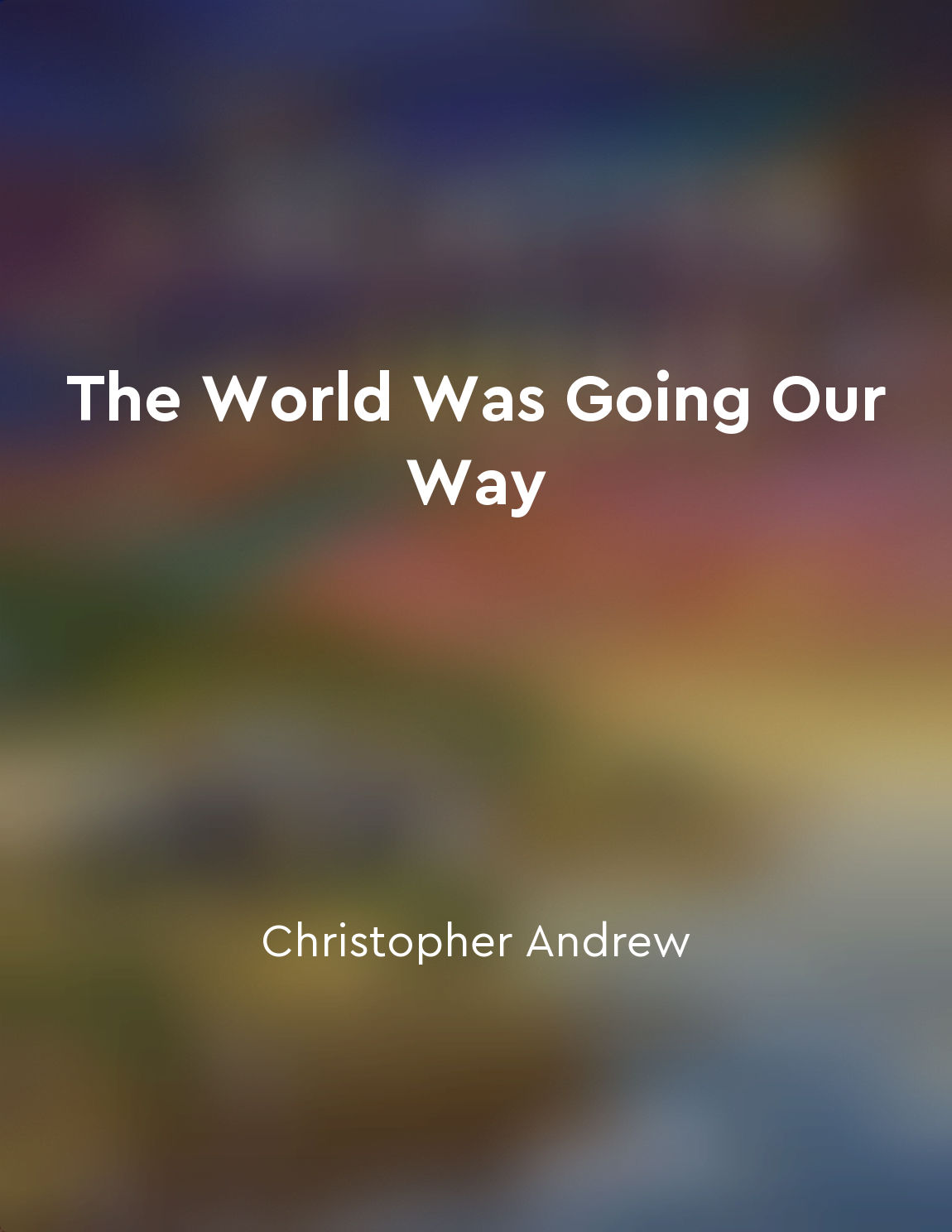Surveillance from "summary" of Iron Curtain by Anne Applebaum
The concept of surveillance in Eastern Europe was all-encompassing. It was not just a tool used by the secret police to catch criminals or enemies of the state. It was a way of life, a mentality, a system that penetrated every corner of society. The Communist regime sought to control every aspect of its citizens' lives, from their thoughts and beliefs to their actions and relationships. Surveillance was not just about watching people; it was about making them feel watched, making them paranoid, making them doubt their own thoughts and intentions. The secret police did not just gather information; they manipulated it, distorted it, used it to create fear and uncertainty. They turned friends against friends, husbands against wives, children against parents. The Communist regime used surveillance as a means of social control, a way to maintain power and authority over the population. By constantly monitoring and surveilling its citizens, the regime could suppress dissent, prevent opposition, and ensure obedience. Surveillance was a tool of repression, a weapon of intimidation, a mechanism of coercion. The pervasive nature of surveillance in Eastern Europe meant that no one was safe from its reach. Anyone could be a target, anyone could be under suspicion, anyone could be denounced. The fear of being watched, of being reported, of being punished, hung over society like a dark cloud. People lived in constant fear, constantly looking over their shoulders, constantly second-guessing their words and actions. In this oppressive environment, individual freedom and autonomy were virtually nonexistent. The state had total control over its citizens, dictating what they could say, what they could do, what they could think. Surveillance was not just a tool of the regime; it was a way of life for the people of Eastern Europe, a reality they had to navigate every day, every hour, every minute.Similar Posts

Cold War, nuclear arms race, space race
The rivalry between the United States and the Soviet Union during the Cold War era was marked by intense competition in various...
The exercise of power is subtle but pervasive
The exercise of power is not always overt or easily recognizable. It does not always involve explicit commands or physical forc...
Governments must balance security and freedom
The delicate balance between security and freedom is a fundamental challenge for governments in the modern world. On one hand, ...
Health systems need to be strengthened and made more resilient
The current global health crisis has shed light on the weaknesses of healthcare systems around the world. It has exposed how un...
Thoughtcrime is punishable by death
In the world of Nineteen Eighty-Four, the ruling Party exerts control over its citizens not only through physical means but als...

Surveillance can be both beneficial and harmful
Surveillance, like any tool, is a double-edged sword. On one hand, it can provide valuable information that leads to the preven...

We must consider the longterm effects of surveillance
Surveillance, when used responsibly and ethically, can be a powerful tool for maintaining security and order in society. Howeve...
